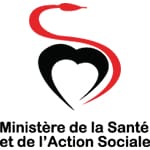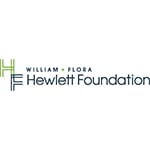Integrating Family Planning and Immunization Services in Senegal
HIGHLIGHTS
- While many Senegalese mothers visit health facilities to immunize their newborns, far fewer discuss family planning options with a health worker and uptake of family planning during the postpartum period is relatively low.
- Integrating family planning counseling into immunization services is a promising practice to address reproductive health needs in the extended postpartum period.
- We designed a solution set that addresses the behavioral barriers of patients and providers to strengthen referral linkages between services.
The Challenge
The World Health Organization (WHO) has identified the integration of family planning (FP) and immunization services as a promising high-impact practice to help new mothers achieve healthy spacing for their pregnancies during the extended postpartum period from 0 to 15 months after childbirth. While many Senegalese mothers visit health facilities to immunize their newborns, far fewer discuss family planning options with a health worker and uptake of family planning during the postpartum period is relatively low.
Integrating family planning counseling into immunization services is a promising practice to address reproductive health needs in the extended postpartum period, yet putting this into practice is challenging since providers on immunization days are very busy. We sought to develop a behavioral solution that could reshape the underlying context to create an environment that facilitates integration. With funding from the William & Flora Hewlett Foundation, we partnered with IntraHealth International and the Ministry of Health and Social Action (MOHSA) in Senegal to improve integration of family planning and immunization services.
Our Approach
In 2015, ideas42 and IntraHealth observed integrated services at 14 health facilities to identify common factors preventing women from taking up FP methods during integration activities. Through conversations with 50 health workers and clients, we saw that providers tunneled on providing immunizations. Clients in the postpartum period perceived no need for FP and were also focused on immunization, and there were no prompts to return to the facility for FP at another time. Based on these insights, in close collaboration with MOHSA, we undertook an iterative design process that incorporated feedback from health workers and clients, as well as national, regional, and district health officials during co-design sessions, user-testing interviews, and field tests. We designed the following three-pronged intervention:
- An interactive mobile training course for providers via interactive voice response (IVR).
- A series of referral cards tied to the baby’s age and pregnancy risk.
- A mobile health drama for families.
Results
In 2019, we conducted two pilot tests and obtained encouraging evidence that our solutions were feasible, acceptable, and effective in increasing conversations in birth spacing during immunization days, while not taking attention away from Senegal’s already high immunization rates. In particular, we found that:
- By distributing referral cards, health workers integrated messaging on birth spacing into conversations with 82-96% of clients attending immunization services during implementation.
- Of those clients receiving referral cards, 67-90% elected to discuss birth spacing with a qualified health worker the same day.
- Facility records for FP consultations indicated that 52% of clients who adopted a new FP method during the implementation period had been referred through the intervention’s referral cards.
- Meanwhile, of the clients enrolled in the IVR message system, 70% of those interviewed said they learned something new about FP or key maternal and child health topics.
Takeaway
Our project highlights how behaviorally-informed solutions to facilitate service integration can help more people access family planning options and is feasible to implement for busy health workers. Approaches such as these hold great potential to be adapted and scaled to other contexts.
Interested in our work applying behavioral science to global health? Email gh@ideas42.org or tweet at @ideas42 to join the conversation.





